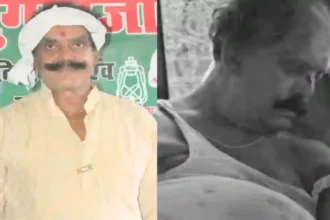Rise in Fake SC/ST Act Cases Sparks Legal Alarm Across India
- Disturbing Numbers Across States
- Real Cases, Real Misuse
- 1. False Gang-Rape + SC/ST FIR (Lucknow)
- 2. Lawyer “Factory” of False FIRs (Lucknow)
- 3. Habitual Complainant Misusing Act (Karnataka HC)
- 4. Civil Dispute Branded as SC/ST Case (Karnataka HC)
- 5. Non-public Verbal Abuse (Bombay HC)
- 6. Remarks Against Revenue Official (Allahabad HC)
- 7. Civil Dispute Masquerading as Atrocity (Patna HC)
- 8. Wrongful Conviction: Vishnu Tiwari
- 9. Fake ST Certificate for Job (Surat)
- 10. A major case came from UP Kaushambi
- Judicial Pushback
- Low Convictions, High Stakes
- The Path Forward
- Protection vs. Persecution
India’s Scheduled Castes and Scheduled Tribes (Prevention of Atrocities) Act, 1989 – commonly known as the SC/ST Act was designed to be a legal shield for against discrimination. But over the past decade, courts, data, and police reports across several Indian states have begun to reveal a disturbing parallel trend: the growing misuse of this powerful law.
Disturbing Numbers Across States
According to NCRB data and court affidavits:
Rajasthan leads with over 42% of SC/ST cases found to be false or mistaken (2020).
In Uttar Pradesh, nearly half of police officers surveyed believed many complaints were “motivated.”
Madhya Pradesh has a reported misuse rate as high as 75%, according to a local legal review.
Bihar’s conviction rate in SC/ST Act cases hovered below 1%, triggering concern about both overuse and investigative failure.
These aren’t just bureaucratic statistics they point to a pattern where a law meant to protect is being weaponized in personal feuds, land disputes, and even political rivalries.
State-Wise Highlights
Rajasthan
In 2020, 42% of SC atrocities cases were deemed fake by the police; similar numbers for ST cases (~40%).
Historical data (2015) shows Rajasthan accounted for over half of 8,900 false SC/ST cases nationally.
Uttar Pradesh
Heavy case load: 12,287 registered SC atrocity cases in 2022.
Survey in 2019: >50% of UP-based police viewed SC/ST cases as false or motivated.
Madhya Pradesh
In 2022, MP recorded 7,732 SC and 2,979 ST atrocity cases.
Wikipedia cites a survey suggesting around 75% misuse rate in MP.
Andhra Pradesh
Among states with high false case counts: 1,099 fake cases in 2015, second only to Rajasthan.
Bihar
Registered 664 fake SC/ST Act cases as per 2015 NCRB data.
2021 Reddit discussion suggests a conviction rate of just ~0.67% for Bihar SC/ST cases.
Telangana
Reported 477 false SC/ST Act cases in 2015.
Odisha & Maharashtra
2022 figures: Odisha logged 3,576 SC and 773 ST atrocity cases; Maharashtra reported 2,706 SC and 691 ST cases.
Karnataka
High Court in 2023 criticized false cases as clogging justice, terming them misuse.
West Bengal, Punjab, Kerala… others
Police surveys across states (e.g., Telangana, Kerala, Karnataka) show significant numbers (~20%+) of officers believing SC/ST cases are false.
Kerala and Karnataka specifically have conviction rates near 1–2% per Reddit.
Real Cases, Real Misuse
Several high-profile cases in 2024 and 2025 have brought this issue to national attention:
1. False Gang-Rape + SC/ST FIR (Lucknow)
Case: A 29-year-old woman falsely accused two men of gang rape and invoked the SC/ST Act to settle personal scores.
Outcome: Special SC/ST court in Lucknow sentenced her to 7.5 years in prison.
2. Lawyer “Factory” of False FIRs (Lucknow)
Case: Advocate Lakhan Singh lodged 20 false FIRs under the SC/ST Act against journalists, officials, and police.
Outcome: Special court sentenced him to 10½ years’ imprisonment and fined ₹2.51 lakh; legal community urged policy change.
3. Habitual Complainant Misusing Act (Karnataka HC)
Case: A dismissed employee repeatedly invoked the SC/ST Act against his former headmaster after being reinstated.
Outcome: Karnataka High Court quashed the FIR, labeled it habitual misuse, and ordered ₹1.5 lakh recovery.
4. Civil Dispute Branded as SC/ST Case (Karnataka HC)
Case: Two brothers faced SC/ST charges over a longstanding land dispute with a neighbour.
Outcome: Karnataka HC quashed the case, calling it “abuse of the process of law” clogging courts.
5. Non-public Verbal Abuse (Bombay HC)
Case: Complaint under SC/ST Act for caste slurs protecting personal relationship.
Outcome: Bombay High Court quashed the FIR, finding absence of “public view” requirement.
6. Remarks Against Revenue Official (Allahabad HC)
Case: A couple accused of caste slurs against a government revenue official.
Outcome: Allahabad HC quashed charges, noting the couple didn’t know the official’s caste and ingredients of offence were missing.
7. Civil Dispute Masquerading as Atrocity (Patna HC)
Case: Land dispute where an SC/ST FIR followed accusations of forged POA.
Outcome: Patna High Court quashed the proceedings, affirming it was civil, not criminal.
8. Wrongful Conviction: Vishnu Tiwari
Case: Tiwari spent 20 years in prison after being falsely convicted of rape and SC/ST atrocity.
Outcome: Allahabad HC exonerated him in 2021 highlighting flaws that enable wrongful use of the Act.
Reddit commenters note:
“This case is a classic example… Vishnu Tiwari… wrongfully convicted… two decades in jail.”
9. Fake ST Certificate for Job (Surat)
Case: A former ACP obtained promotion using a
fraudulent ST caste certificate.
Outcome: FIR registered; case under investigation.
10. A major case came from UP Kaushambi
Judicial Pushback
Indian High Courts are increasingly stepping in. From Allahabad to Karnataka, judges have not only quashed false FIRs but also begun penalizing the complainants for abuse of process. “The law must protect the vulnerable,” said a 2024 judgment from the Allahabad High Court, “but it cannot become a sword to settle private vendettas.”
In a striking case, a wrongfully convicted man named Vishnu Tiwari spent 20 years behind bars before being declared innocent. His case became symbolic of the dangers of unchecked legal power.
Low Convictions, High Stakes
Data shows that SC/ST Act cases have some of the lowest conviction rates in India often below 5%. While activists argue this indicates systemic bias and shoddy investigations, others see it as proof of frequent misuse.
“Either way,” says criminal lawyer Neha Tripathi, “it reflects a justice system under pressure caught between genuine grievance and growing misuse.”
The Path Forward
Experts suggest a balanced reform approach:
1. Mandatory pre-FIR scrutiny for complaints under the SC/ST Act.
2. Police training to distinguish between genuine atrocity and personal vendetta.
3. Faster judicial review for prima facie false cases.
4. Penalties for false complainants to deter malicious filings.
Protection vs. Persecution
India’s constitutional promise to protect Dalits and Adivasis remains non-negotiable. But as misuse grows, so does the risk that the law’s credibility will erode hurting real victims in the process.
Laws meant to shield must not become tools to settle scores. As the courts step in to restore balance, policymakers face the critical task of ensuring that justice is neither delayed nor distorted.
Have insights, cases, or experiences related to misuse of laws?
Write to us at editor@thenewsdrill.com or tag us on social media as thenewsdrill.
















